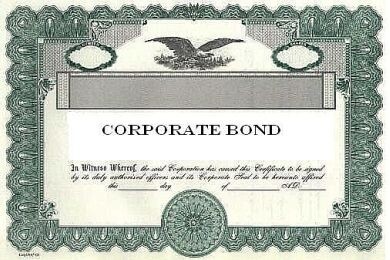
7 Ways to Find Yield
Financial Planning senior editor Ann Marsh interviewed seven planners about techniques they're using in order to help their clients get the returns they need:

1. Hank McLarty, founder of Gratus Capital Management
The economic crisis of 2008 exposed a vast global over-valuation of mortgage-backed securities. Lost in the subsequent stampede to sell were securities that did--and still do--possess strong underlying fundamentals.
"There's a great deal of value there because most investors said, 'I don't want any part of it,'" says McLarty, who is also a former fixed-income trader at Morgan Stanley. "The yields are quite good--15% or 16%--if you have the ability to go find them," he says.

2. Brian Kazanchy, wealth manager at RegentAtlantic Capital
In his practice, Kazanchy's firm has allocated fully 45% of its fixed-income investment to so-called opportunistic bond managers. These managers run mutual funds that give them broad permission to invest anywhere in the bond market they see opportunities.
"You are giving them the latitude to go anywhere in the bond market, not just to Treasuries, corporate bonds or munis," Kazanchy says. "They can also short-sell."
At the same time, he says, these managers are taking on higher credit risk by investing in lower-grade bonds with potentially higher returns. Still, "the double-B and single-B areas of rated companies are paying good interest rates," Kazanchy says, "and not many of those companies are going out of business because profits have recovered and balances are strong. It's a good time."

3. Richard Burridge Jr., CEO and chief investment officer of RMB Capital Management
Yes, emerging markets underperformed in the latter part of 2011. But many planners expect them to fare better this year.
"Emerging markets are relatively healthy compared with the rest of the world," says Burridge.
Like other planners, Burridge expects rates to rise on debt denominated in foreign currencies. That's not the only attraction; there's also the hedge of holding assets in another currency.
"The currency benefits should be positive as emerging market currencies appreciate compared with the dollar," he says. "While we primarily have a U.S. bias, we like to introduce some currencies into the allocations in order to maintain a client's global purchasing power."

4. Adam Sherman, CEO of Firstrust Financial Resources
Some planners are using senior secured private debt to generate returns of 6.5% to 7%. This market has opened up to investors as banks have shut down on financing to all but their largest clients.
"For public companies it's very easy for them to access capital," says Sherman. "They can issue a new stock and go to the marketplace." However, "middle-market private companies--and there are a lot of household names that fall into this category--are companies that have elected for whatever reason to not be public companies now. They are looking for third parties to get money from."
These companies are finding their financing through large asset management houses and private equity firms like Blackstone Group and KKR. The loans are fully collateralized, a big part of their appeal, Sherman says.
"When G.M. went bankrupt, the senior secured people got back 100 cents on the dollar while the common stakeholders or stockholders got back nothing," he says.

5. Douglas Ciocca, CEO of Kavar Capital Partners
High-dividend equities planners treat as similar to fixed-income investments could include REITs, utilities and business development companies, which tend to be hedged the same way fixed-income would.
While many experts say they have exited Europe because of the debt crisis, Ciocca says he uses a European strategy for dividend-paying stocks.
In appropriate client portfolios, he has 5% to 10% invested in the American depository receipts of the largest European companies. Large European concerns that issue ADRs include French oil company Total and British-Dutch consumer goods giant Unilever.
"Some European firms use a U.S. listing, so they can raise capital--and they can be phenomenally profitable," generating dividends of 3.5% to 5%, Ciocca says.

6. Frank Germack III, director of Rehmann Financial's capital management group
Some planners are leery of any kind of partnership because of the lack of investor control and the complexity of dealing with a K-1 form at tax time. Yet others like one breed of partnership--the master limited partnership--which typically invests in hard assets like pipelines for oil field transportation.
"We think they offer good income potential at 5%" compared to 2% in bonds, Germack says. He says he gets around the K-1 issue by buying exchange-traded notes that own the master limited partnerships instead of buying the partnerships directly; ETNs issue 1099s.
But Germack cautions that master limited partnerships "tend to be focused on the energy sector." Second, "there still may be some correlation with interest rates. If interest rates rise, this income may not mean as much," he adds.

7. Eric Toya, planner with Trovena
Many planners don't like annuities because of the high cost and large downside risk. But sometimes these policies can give certain clients the peace of mind they crave in the form of a reliable stream of income.
If used right, an annuity "could be a useful thing for a client," Toya says. That said, he's still careful about these products. Any income not treated as return-of-principal is typically treated as ordinary income, making annuities "not very tax efficient," he says. And there's always extensive fine print, he adds.





